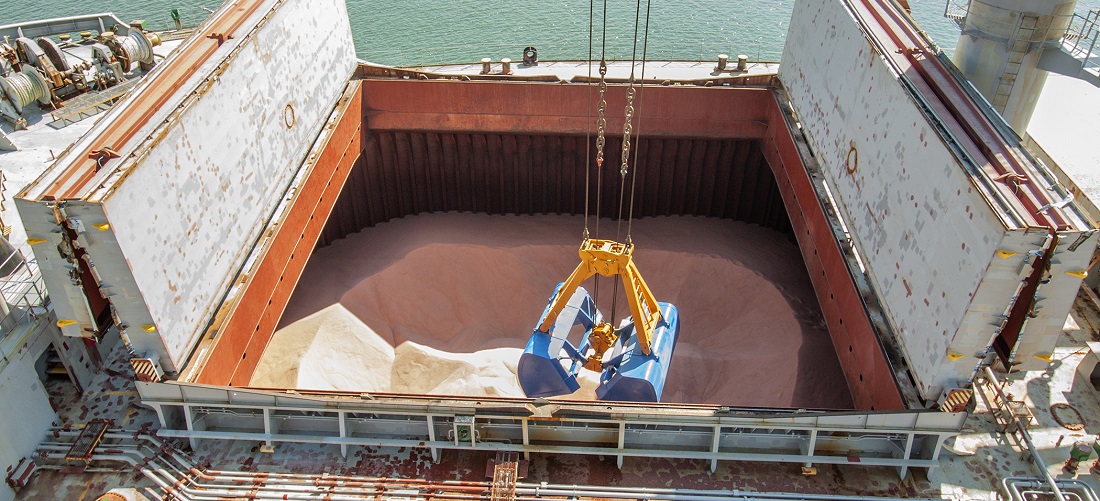
Sindiadubos: fertilizer imports to fall 30% in the year
Nov, 04, 2022 Posted by Gabriel MalheirosWeek 202244
The Paraná state fertilizer industry association Sindiadubos projects a 30% fall in the arrival of imported fertilizers at the Port of Paranagua by the end of this year. In addition, the association estimates a decline in the annual deliveries of fertilizers sold and sent to producers, ranging from 9.4% to 16.5%.
In the event of a 10% reduction in imports between August and December of this year, the drop in deliveries will be 9.4% for the year, with a final stock of 9.13 million tonnes without commercialization. The volume is 41% higher than what was on hand at the same time last year.
If deliveries to farmers reduce by 25%, about 12.3 million tonnes will be kept in stock. Such a scenario would be worse for the market since the volume stored would be 91% higher than in 2022.
These and other projections were presented to representatives of the productive sector and entrepreneurs in the fertilizer sector who participated last week of the NPK 2022 Symposium in Curitiba. The event was attended by more than 600 participants from Brazil and other countries such as China, Russia, and Canada.
According to Sindiadubos president Alusio Schwartz Teixeira, the projections were based on data released by the National Association for the Diffusion of Fertilizers (ANDA) up to July as the current scenario of purchases and deliveries to farmers.
“We had an atypical year, with a high volume of imports. In response, farmers try to anticipate market trends and buy stocks in advance, causing a drop in imports in the medium run and the delivery of products,” said Aluísio. According to him, the market is adjusting to the current reality, and the reduction of stocks shall bring equilibrium to the market until the end of the year,
Economics and international politics
Brazil bought a record volume of fertilizers in 2022, allowing local producers to increase the crop area in the country amid fears of scarcity due to the war between Ukraine and Russia, an important supplier. The ports in the southern state of Paraná are the country’s main entryway of fertilizers, accounting for 30% of national imports.
See below the track record of the volume of fertilizers (hs 0207) Brazil imported between January 2019 and September 2022, according to DataLiner.
Brazilian Fertilizer Imports | Jan 2019 – Sep 2022| WTMT
Source: DataLiner (click here to request a demo)
The Operations Director of the port authority Portos do Paraná – APPA, Luiz Teixeira da Silva Júnior, said its administration will continue investments in operational improvements to reduce costs and increase competitiveness.
“Portos do Paraná invests in both maritime and land-based infrastructure. The port authority also targets ship productivity through regulations that increase legal trust”, says Teixeira.
Port operators have also been investing to increase their capacity to receive imported products. “A port operates on demand. With a higher volume of imports, we adapt accordingly. For example, port operators invest in modern equipment and storage to facilitate fertilizer imports.”
Investment in storage
Fortesolo – a port operator specializing in landing operations and storage of fertilizers in Paranaguá – is working on expanding its storage infrastructure.
In the coming months, warehouse capacity is expected to increase by 45%, from 227 thousand tonnes to 327 thousand. “We are increasing our storage capacity to serve the market better,” says Marco Ghidini, president of Fortesolo.
The Ponta do Félix Port, located in Antonina, on the coast of Paraná, also seeks to expand its static capacity from 310 thousand to 545 thousand tonnes. The terminal also features a bonded warehouse, which recently was the protagonist of the first fertilizer re-export operation in the country.
Because of the high stocks and the drop in fertilizer prices, particularly phosphorus and potassium, the sector devised a re-export strategy.
This is because a bonded warehouse allows for the suspension of tax payments while remaining under fiscal control because the cargo remains the exporter’s property without being imported and nationalized. “The bonded area is a neutral zone that is commonly found in ports for the purpose of foreign trade. This increases commercialization flexibility without the imposition of national taxes,” Gilberto Birkhan, president of Porto Ponta do Félix, reports.
In October, the port re-exported 40,400 tonnes of fertilizers in two operations, one to the United States and the other to Jordan.
-
Economy
Aug, 19, 2022
1
Exports: Brazil buys 36% of Paraguay shipments
-
Environment
Oct, 11, 2024
0
First phase of Fortescue in Pecém approved for H2V production
-
Ports and Terminals
Jul, 28, 2022
0
Suape moors the largest vessel in its history
-
Feb, 28, 2023
0
Exclusive space for forwarders guarantees innovation at Intermodal 2023



